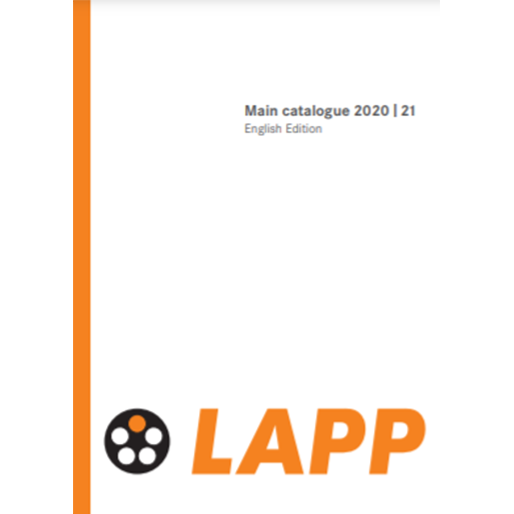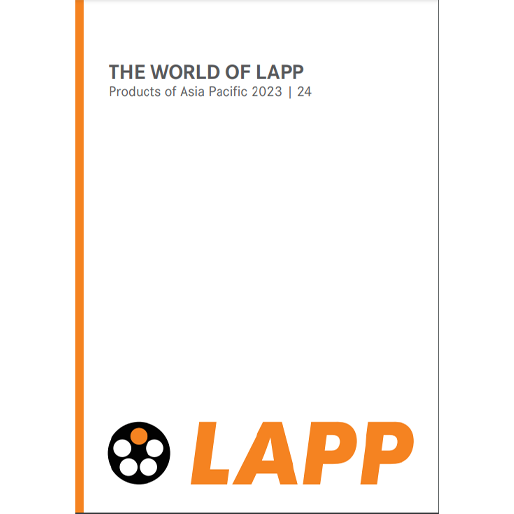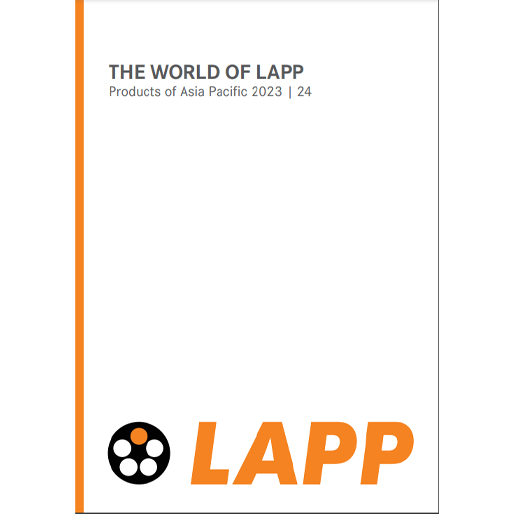Oil-resistant cables and wires


When we think of industrial production lines or stationary drives, no mechanically moving machine can be imagined without lubrication points and automatic oil wetting. Almost all applications nowadays are electronically monitored and wired. In CNC milling machines, for example, liters of cutting and cooling oils flow, which inevitably come into contact with the cables and lines and sometimes even swim in them for a longer period of time. In the following paragraphs you will find out what is important to you if you use cables in oily environments.
What is oil resistance?
Oil resistance describes the material compatibility of the plastic outer sheath of a cable with the oil that comes into contact with it. At LAPP, we test our cables and wires in accordance with recognized German, European and international standards. Standardized test oils are used to test and confirm the oil resistance of cables and wires. You can recognize oil-resistant LAPP products in the catalog or shop by our oil drum pictogram as an indicator for products with increased oil resistance. In addition, products with a "PUR outer jacket", which are always oil-resistant due to their material properties, are marked with the product designation "P". For example with our product ÖLFLEX® CLASSIC 400 P , a cable with increased chemical resistance.
When is a cable or line resistant to oil?
To avoid damage from the effects of oil, all components of the system must be oil-resistant. This assumes that in addition to the oil resistance of the cable jacket, all plug connections or cable glands are oil resistant. If this is not the case, oils cause the plastics to swell or become brittle. Plugs or screw connections that are not oil-resistant would simply burst or even fall off. The same applies to the outer sheath of the non-oil-resistant cables, it loses its protective effect and your cable may fail completely.
Cables, connectors and cable glands are therefore to be regarded as oil-resistant if the materials used in the plastics of the products cannot enter into chemical reactions with oils. The resulting consistently unchanged properties of the plastics, despite permanent or temporary contact with oil, make the product oil-resistant.
Where are oil-resistant lines and cables used?
When manufacturing components in industry, cutting and cooling oils are used, among other things, for temperature control and tool protection. As a result, cables, connectors or screwed cable glands, for example, which are used to connect the actuators and sensors in the system, are permanently or temporarily exposed to various oils.
Oil-resistant LAPP products are resistant to lubricating, cutting and cooling oils, chemical cleaners and hot water and are therefore ideally suited for many industrial applications in production or manufacturing.
For example, our oil-resistant SKINTOP® cable glands are long-lasting resistant to various oils. This means that your cable gland always remains functional, even after a long period of use in oil, and does not swell or fall off.
For special applications, such as in a CNC machining center, some of the lines have to be permanently immersed in oil or have to be resistant to warm cooling lubricant. An oil-resistant outer jacket of the cable ensures a long-term functional connection with a low risk of failure.
Not all oil is created equal - how does that influence the selection of cables and lines?
Oils differ greatly in their chemical composition, depending on the application. The standardized test oils used for the common tests, mostly based on mineral oil, cover many areas of application, but cannot represent every possible composition. At LAPP, we therefore offer you the opportunity, if required, to check whether the selected product is also resistant to the special oil you are using. Talk to our experts about this.
Fluoropolymers or Teflon are the all-purpose weapon against almost all oils in the cable industry. Often, the resistance to very special oils can only be ensured with lines made of plastic made from these materials. We at LAPP offer you the perfect representatives for use with special oils with our products ÖLFLEX® HEAT 205 and ÖLFLEX® HEAT 260 .
Further important and oil-compatible outer sheath materials can be found in the following table:
| Insulation material | Description of oil compatibility |
| PU | Cables with a PU outer sheath offer a high oil-resistance and are also very notch-resistant. PU outer sheaths are therefore frequently used in plant and mechanical engineering. The polyurethane (PU) sheathing remains flexible even in continuous use, withstands high mechanical stress and is also resistant to many chemicals and oils. |
| PVC | Cables with a PVC outer sheath are not particularly resistant to oil in their usual chemical composition. But here too, no rule without exception applies. At LAPP, we offer you products with a PVC outer sheath that offer you the benefits of a PVC cable while also being oil resistant thanks to special chemical additives. Of particular note is our ÖLFLEX® 191, an oil-resistant and flexible PVC cable for the European and North American markets. |
| TPE | In addition to UV resistance,thermoplastic elastomers (TPE), which also include thermoplastic polyurethane (TPE-U) or PU, also offer a high level of oil and bio-oil-resistance. Compared to PU, however, a cable with a TPE outer sheath usually stands out due to its higher UV-resistance and other temperature ranges. |
What other products are oil-resistant in addition to cables and wires?
In addition to oil-resistant cables and wires, we also offer you a wide range of plastic cable glands, connectors and oil-resistant drag chains.
The SKINTOP® ST-M , an oil-resistant plastic cable gland with permanent vibration protection and reducing sealing insert, offers you tested functional reliability even with demanding cleaning processes for machines and systems.
You are also reliably protected against failures in oily environments with our multiple chemically resistant EPIC® connectors.
Oil-resistant cables or lines are not sufficient if the drag chain in which they are located cannot have this property. Oil-resistant drag chains are indispensable in linearly moving machines and systems that are used in oily environments. Drag chains made of NYLON are a good solution here. Drag chains made of galvanized steel are unsuitable. Largely oil-resistant, but not resistant to some components of cleaning agents, it is unsuitable for use in the food industry. In such a case, prefer a stainless steel drag chain or hybrid drag chain.
The LAPP ÖLFLEX® CONNECT CHAIN CONFIGURATOR supports you in finding the right drag chain for your application.




